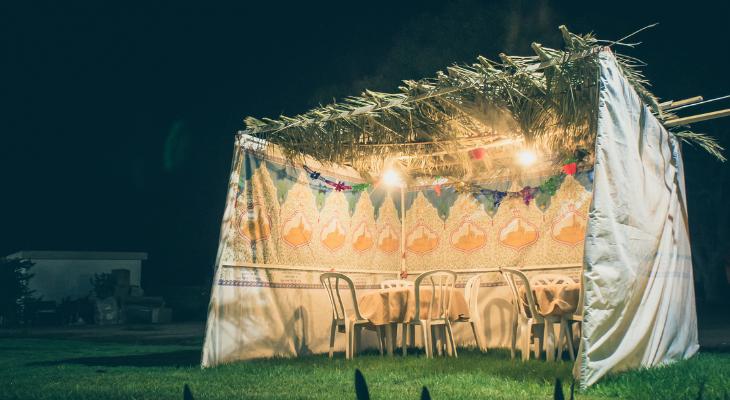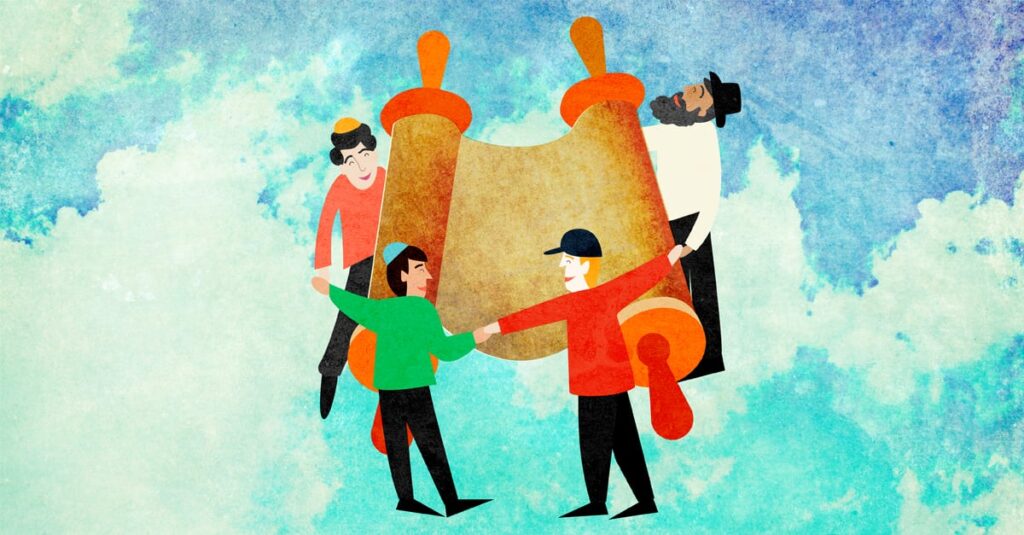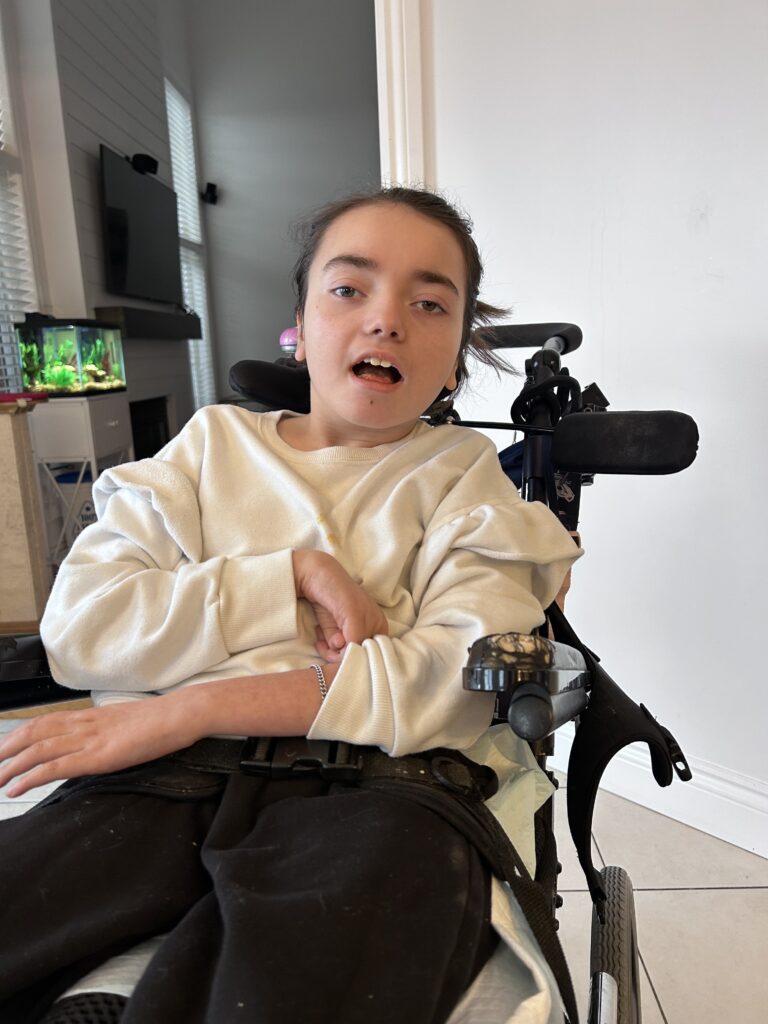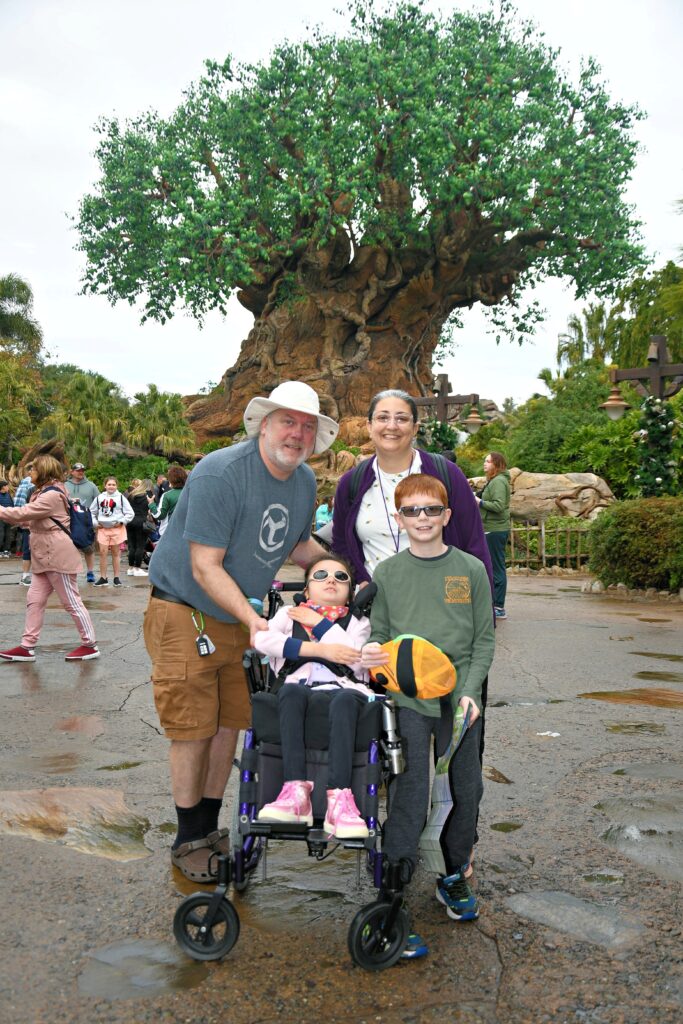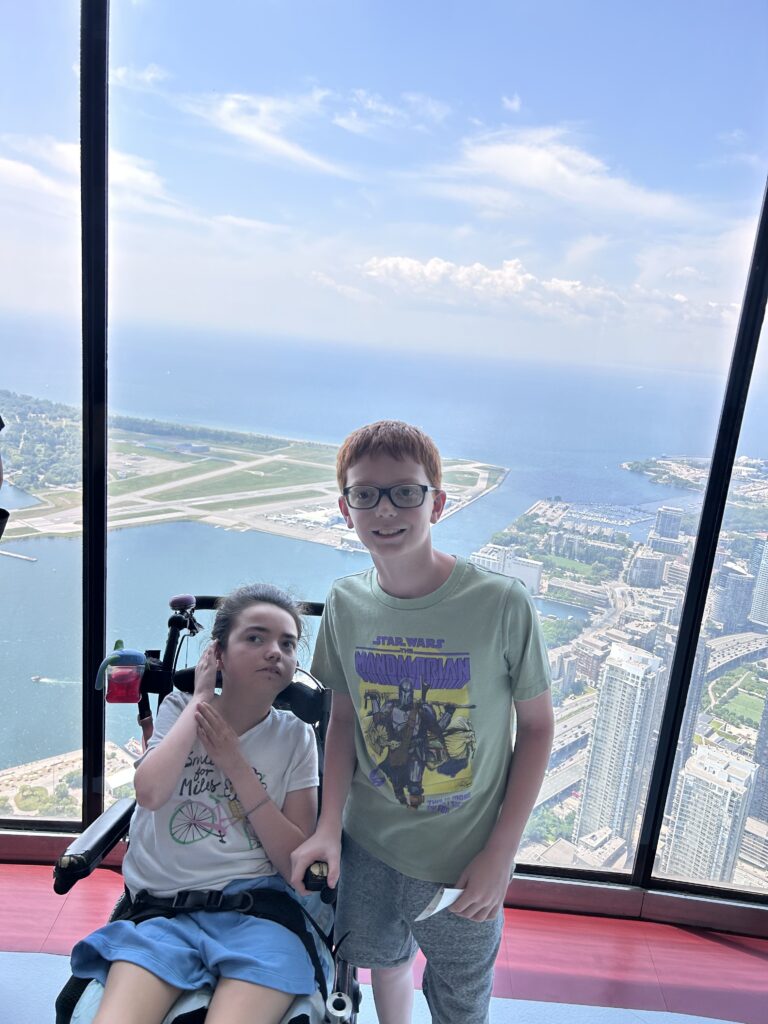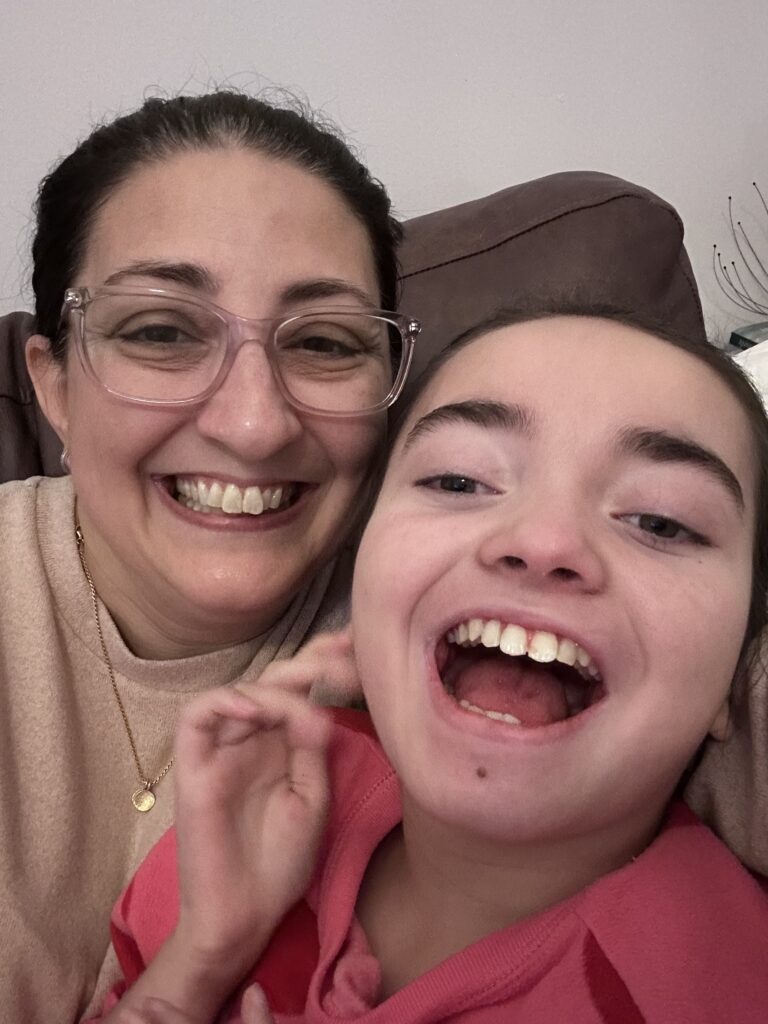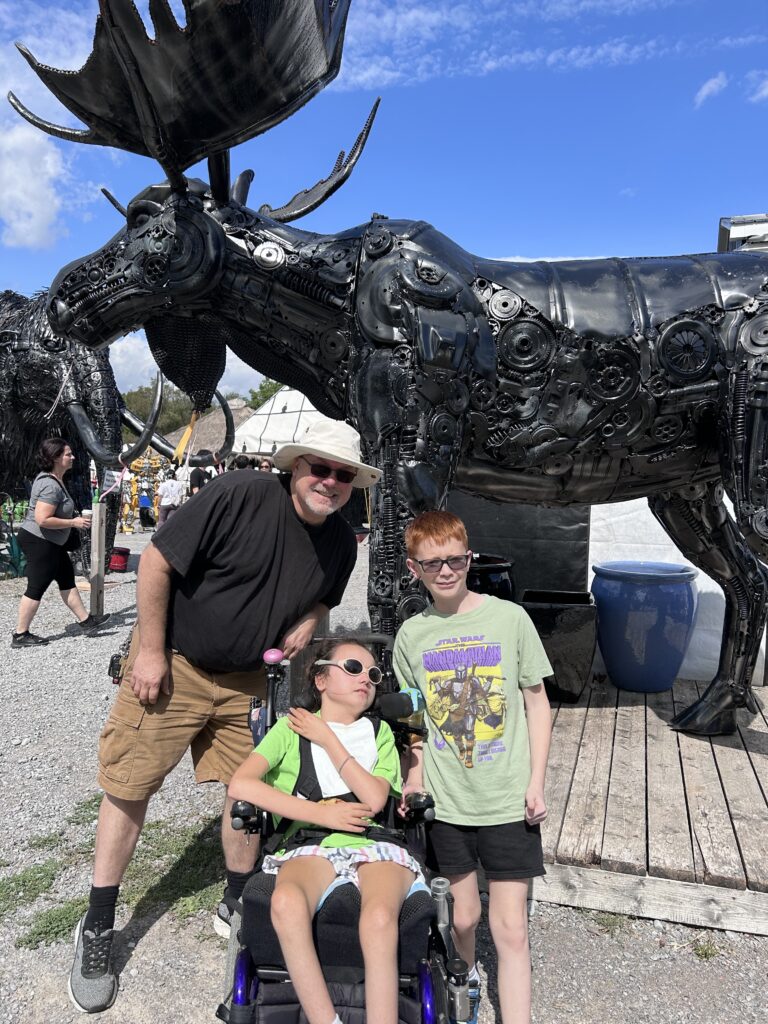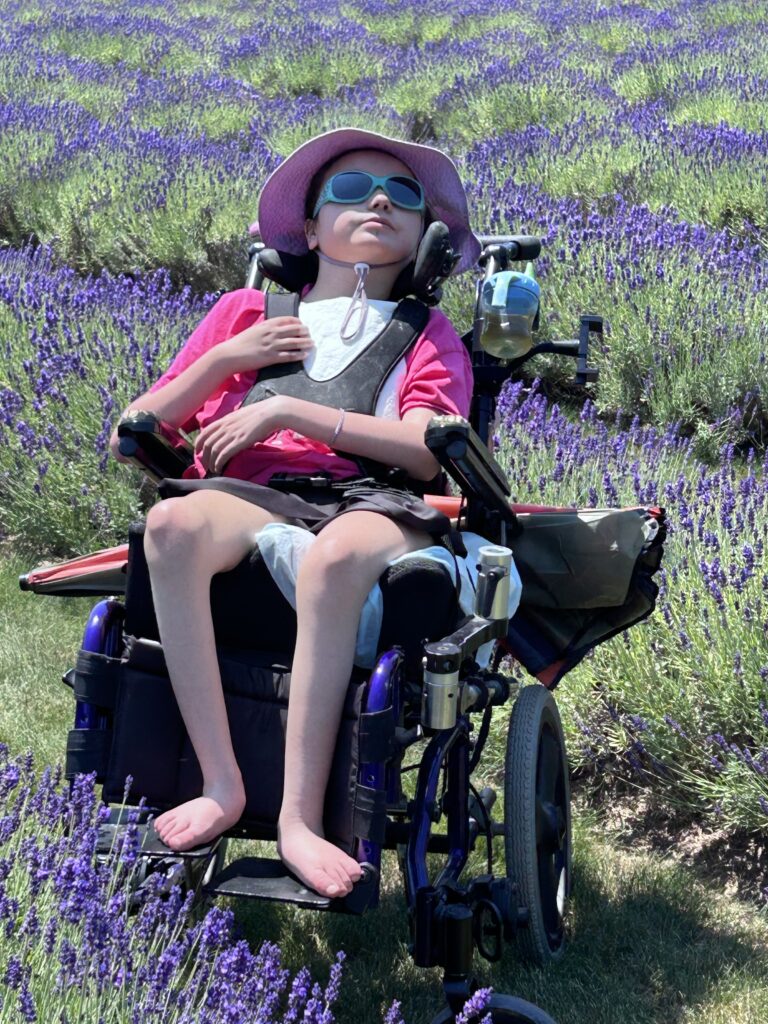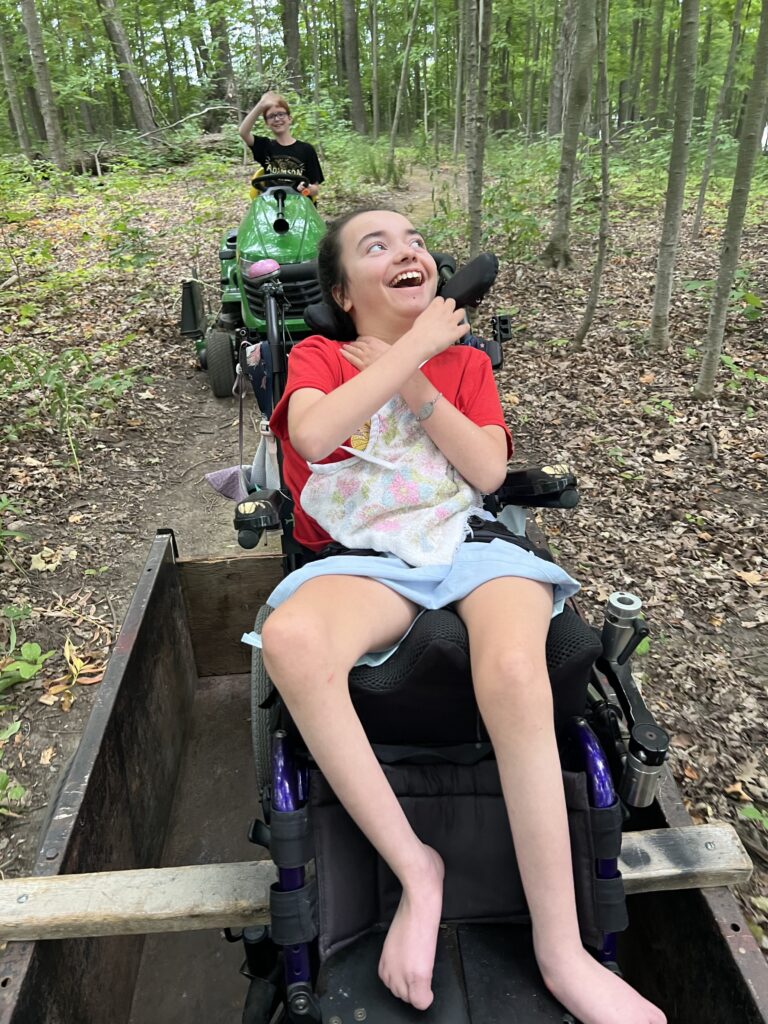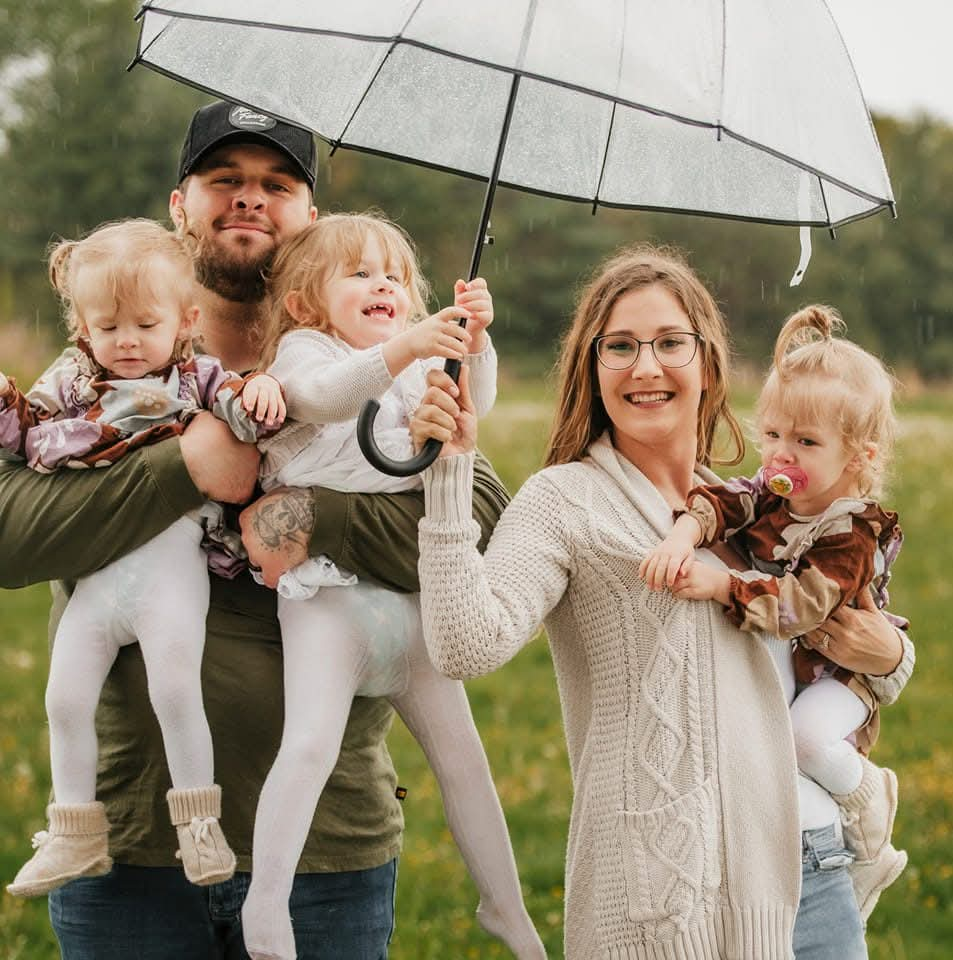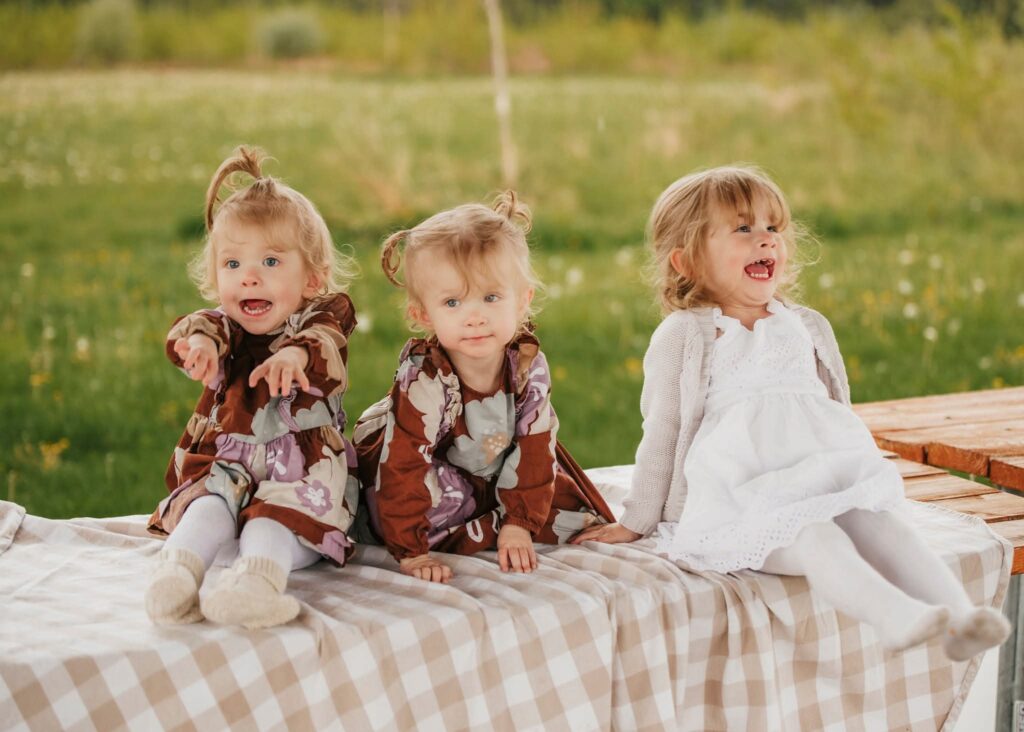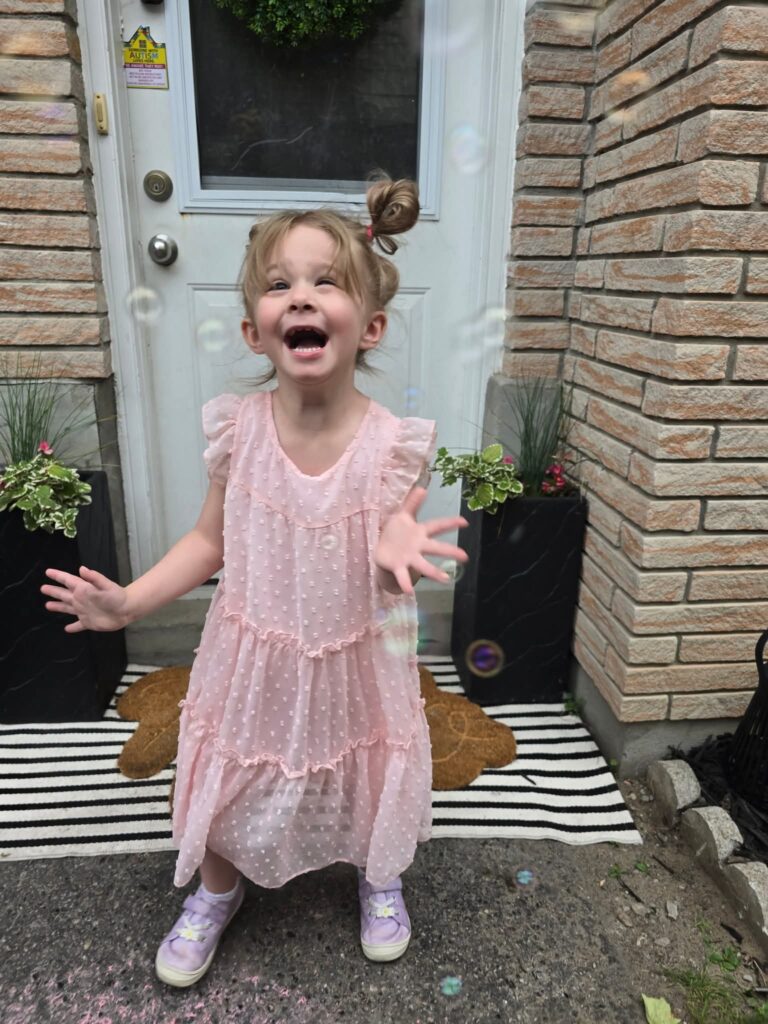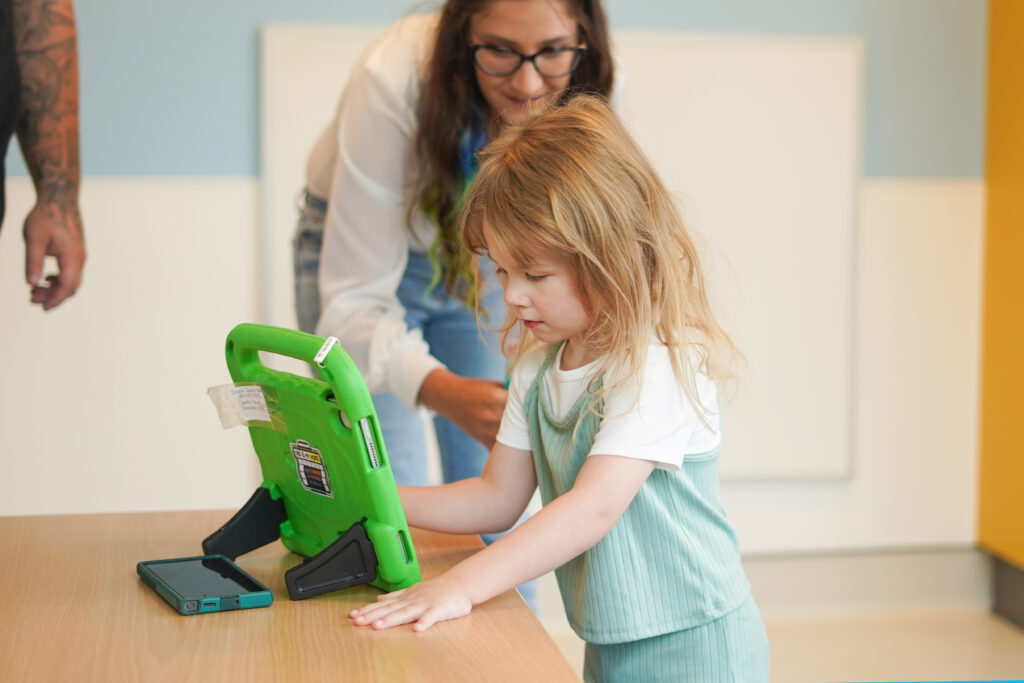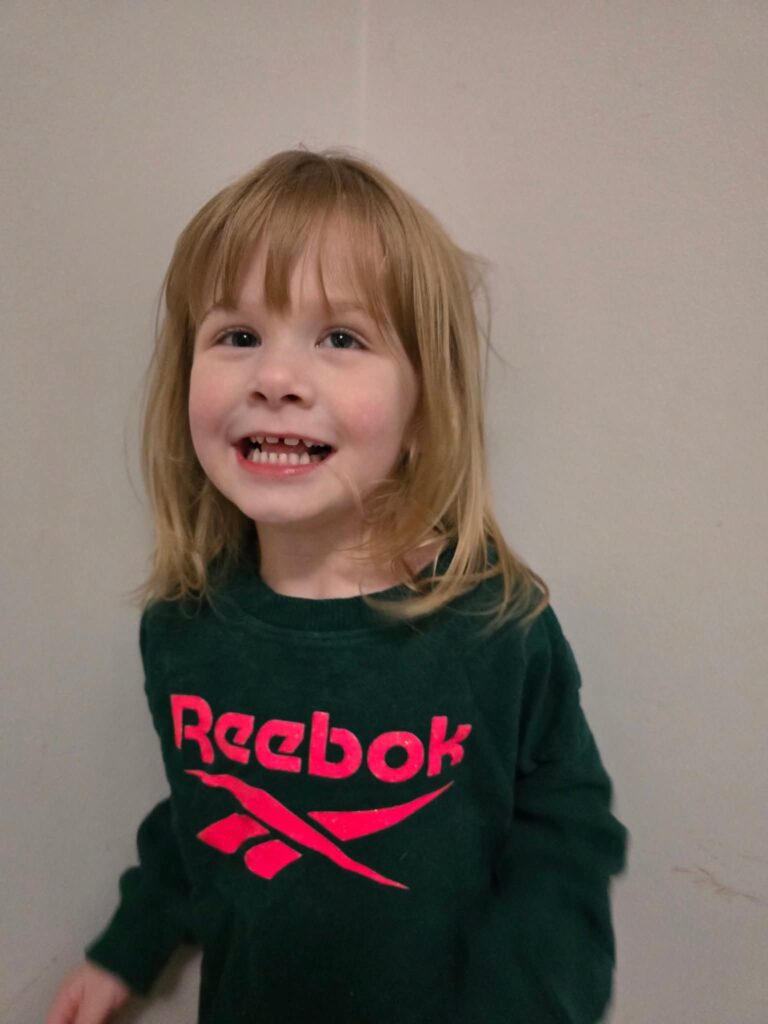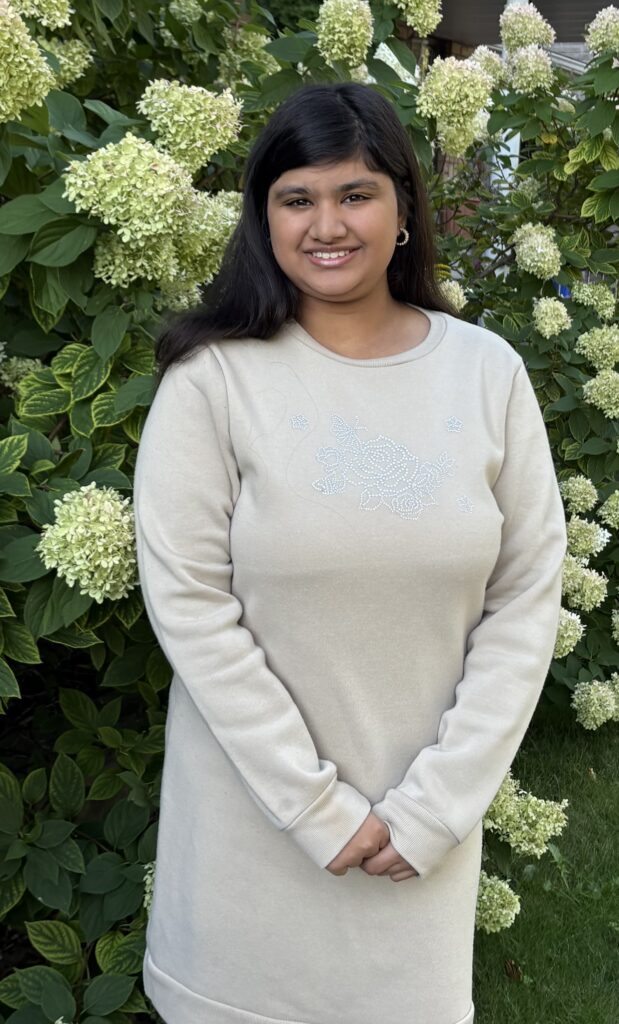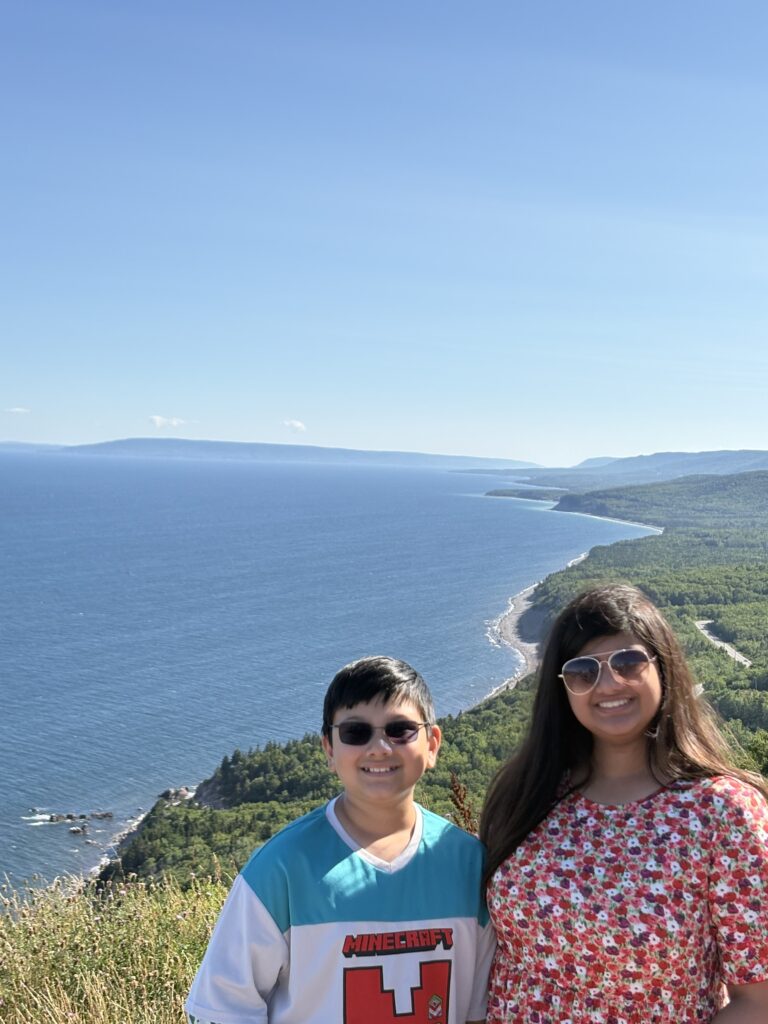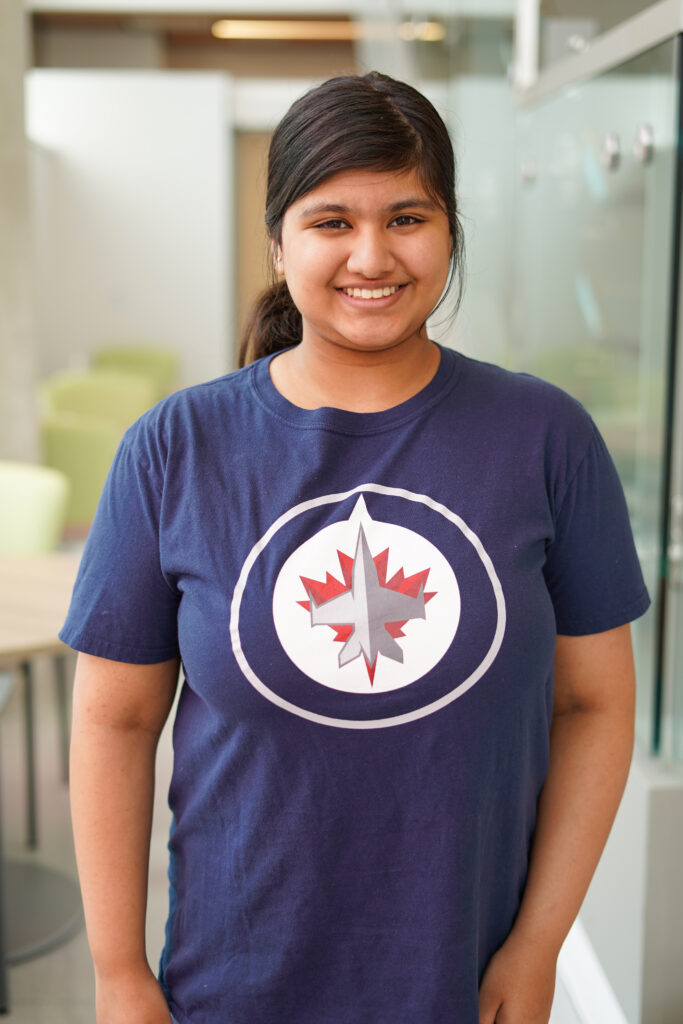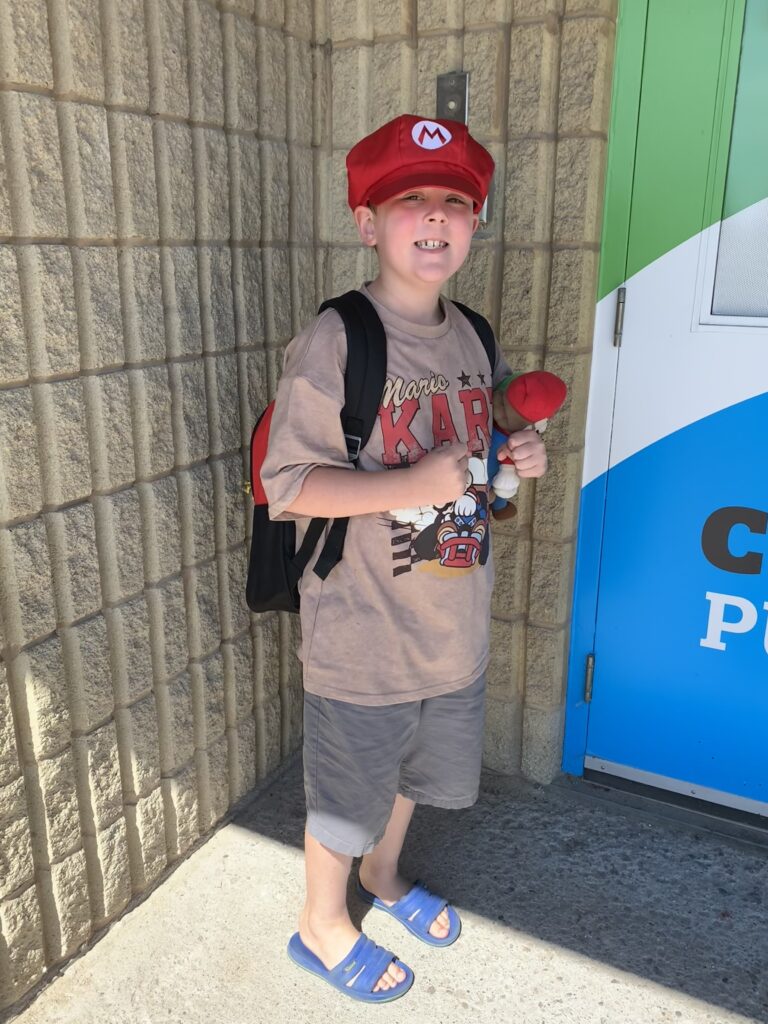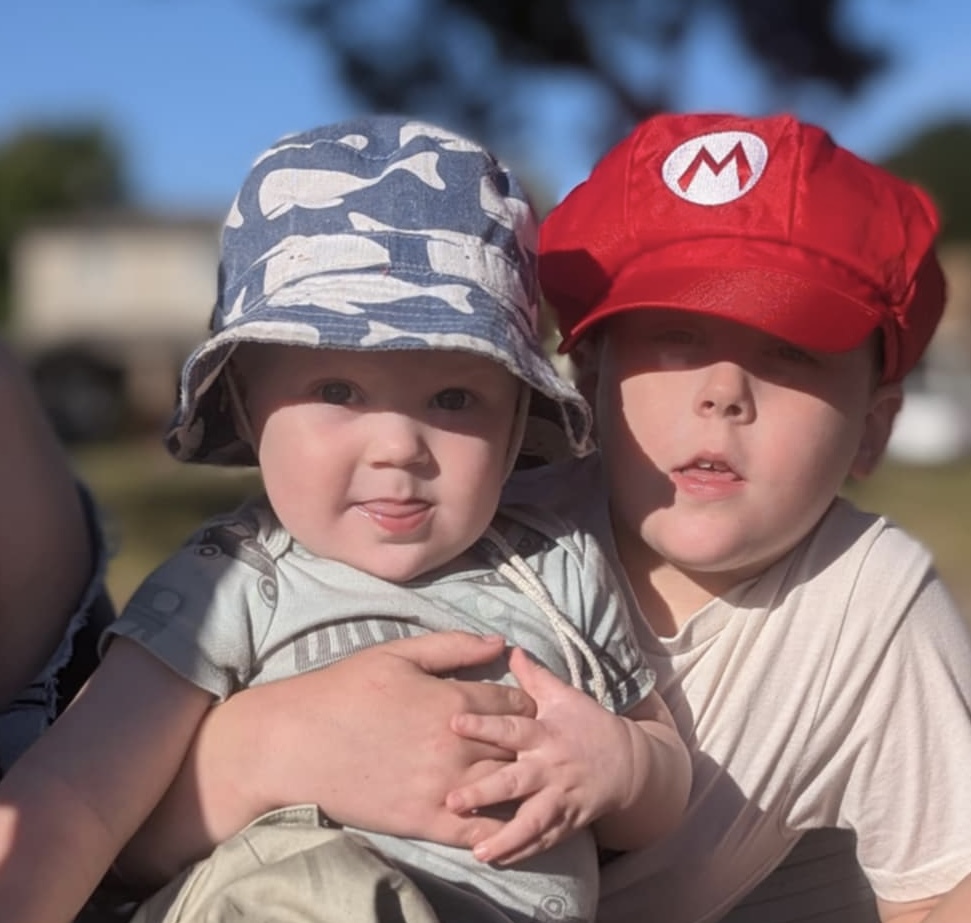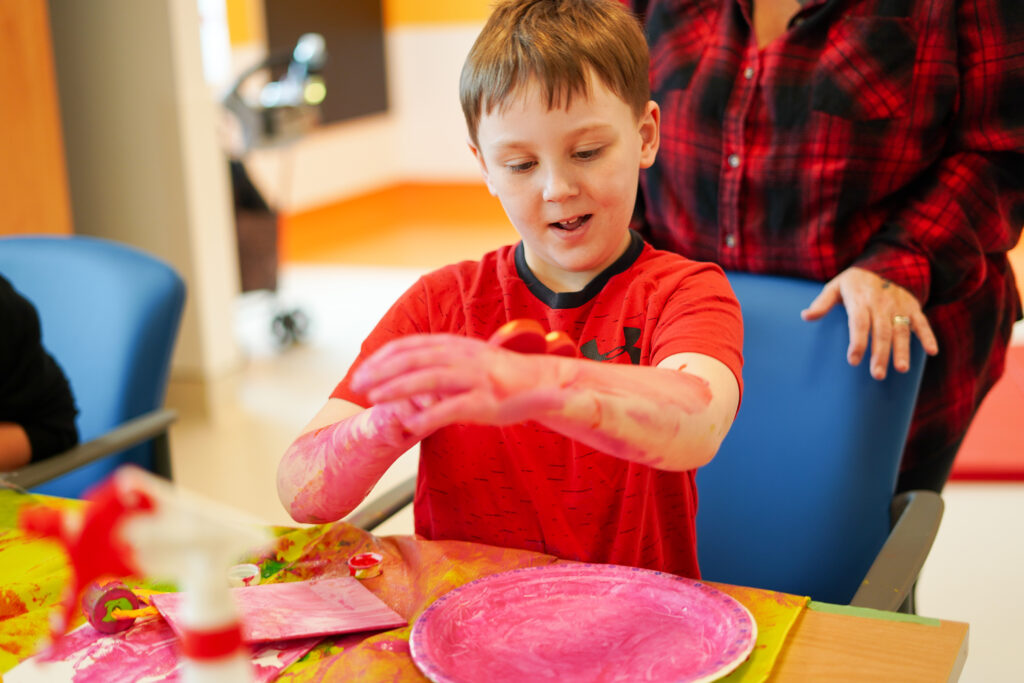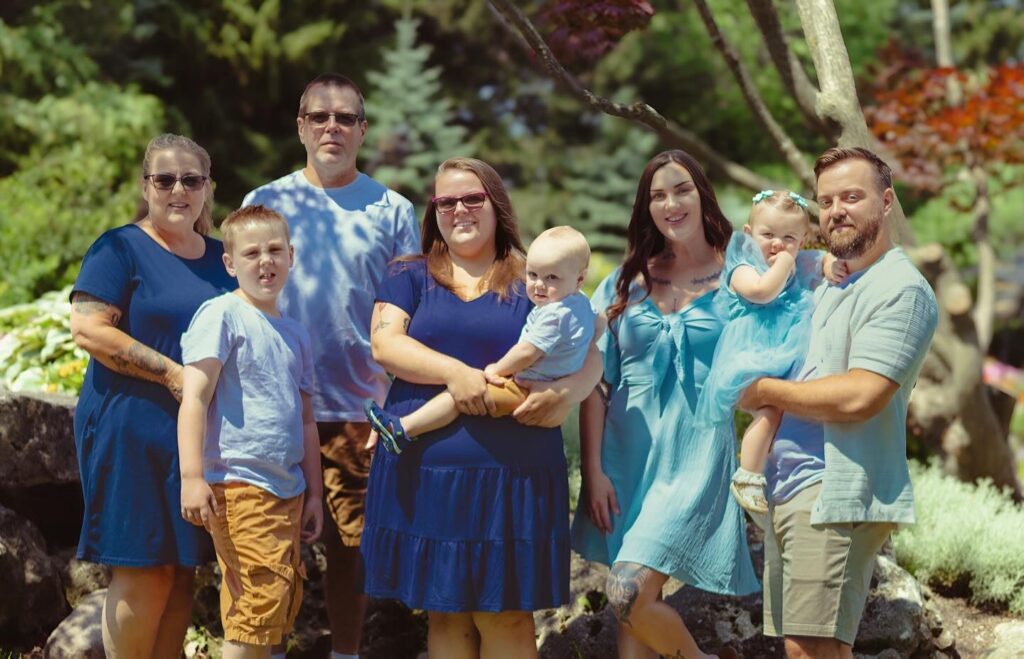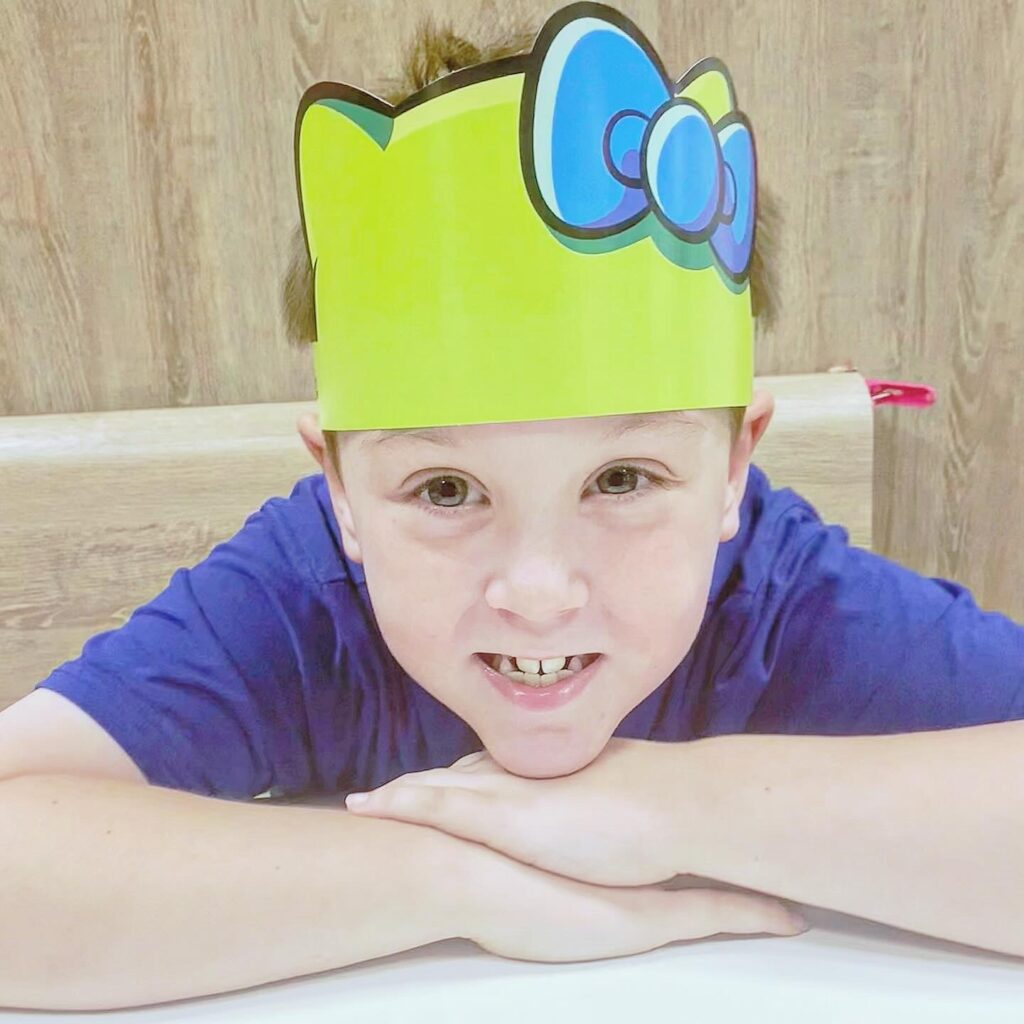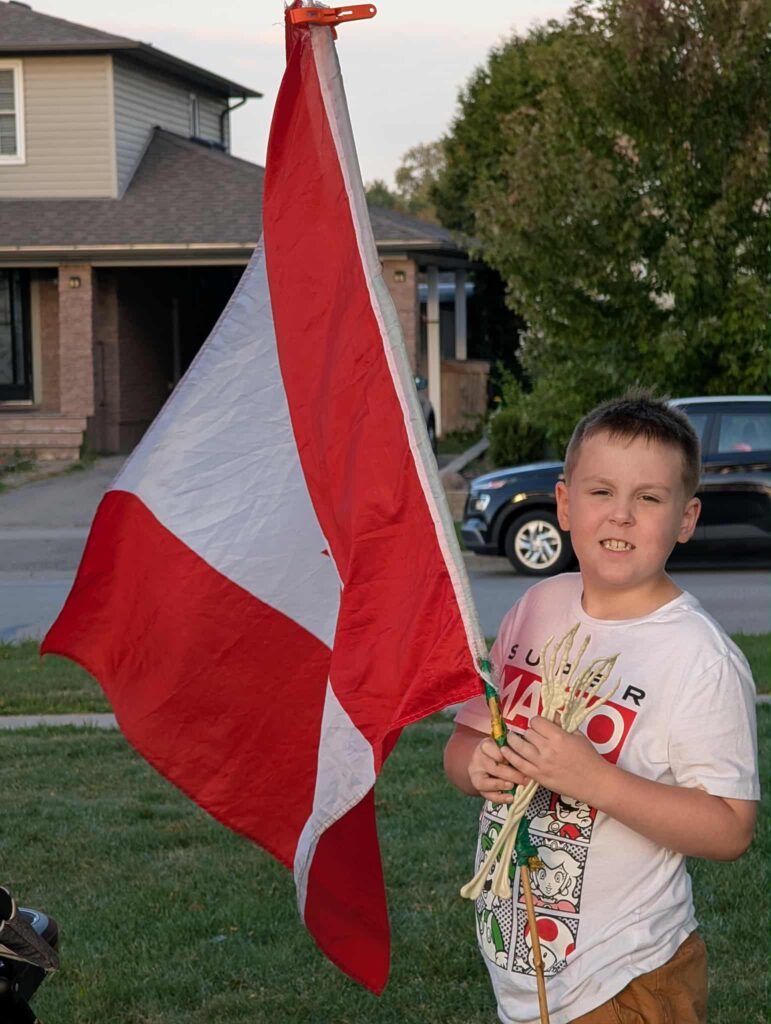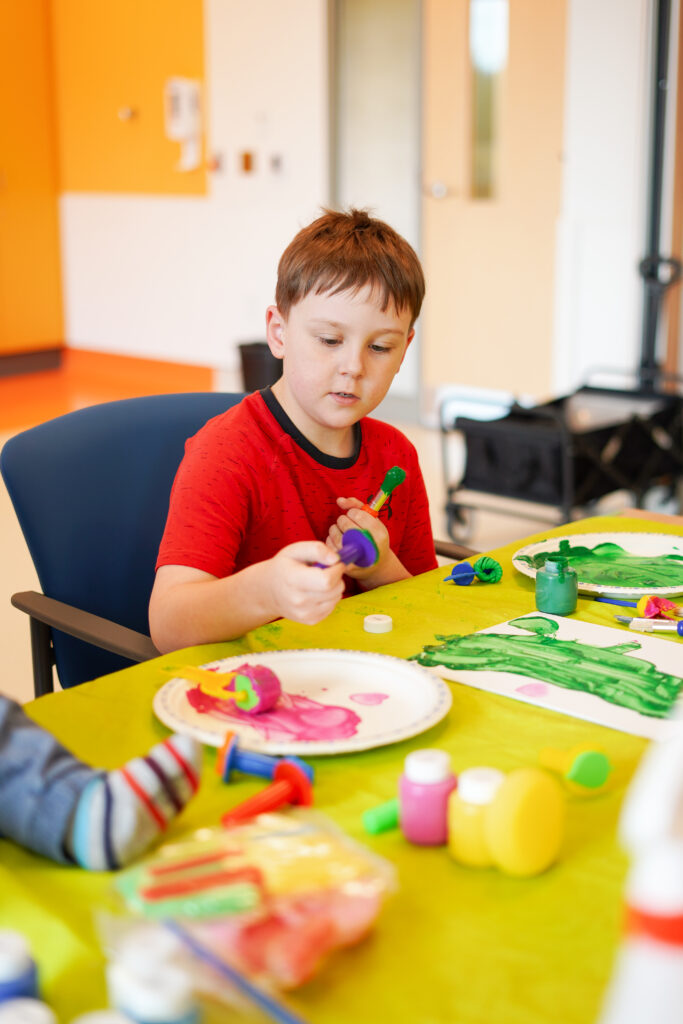In October, we acknowledge Occupational Therapy Month, International Augmentative Alternative Communication (AAC) Awareness Month, National Disability Employment Awareness Month, Rett Syndrome Awareness Month, Learning Disabilities Awareness Month, Global Diversity Awareness Month, Canadian Islamic Heritage Month, Women’s History Month, National 2SLGBTQIA+ History Month, World Cerebral Palsy Day, World Mental Health Day, International Day of the Girl Child, Person’s Day, Invisible Disabilities Week, International Stuttering Awareness Day, International Dwarfism Awareness Day, World Spina Bifida and Hydrocephalus Day, World Occupational Therapy Day and World Stroke Day.
Below, read more about each date of significance, written by members of our Inclusivity, Diversity, Equity and Accessibility (IDEA) Committee.
Occupational Therapy Month
October is Occupational Therapy Month, a time to celebrate the vital role occupational therapists play in helping people live full and independent lives. Occupational therapy, or OT for short, is a health profession that helps you or your family member develop the skills needed for day-to-day activities when these abilities have been hampered by injury, illness, chronic disease, mental health issues, developmental delays, learning problems, the impacts of getting older or other health factors.
OTs use different approaches to help meet your needs, including:
- Therapy programs for physical, cognitive, behavioural or mental health problems
- Introducing alternative ways of doing things
- Modifying your environment with accessible design and ergonomic solutions
- Prescribing assistive devices
- Consulting with families or caregivers
Learn more about occupational therapy at Grandview Kids from our occupational therapist, Natasha S., here.
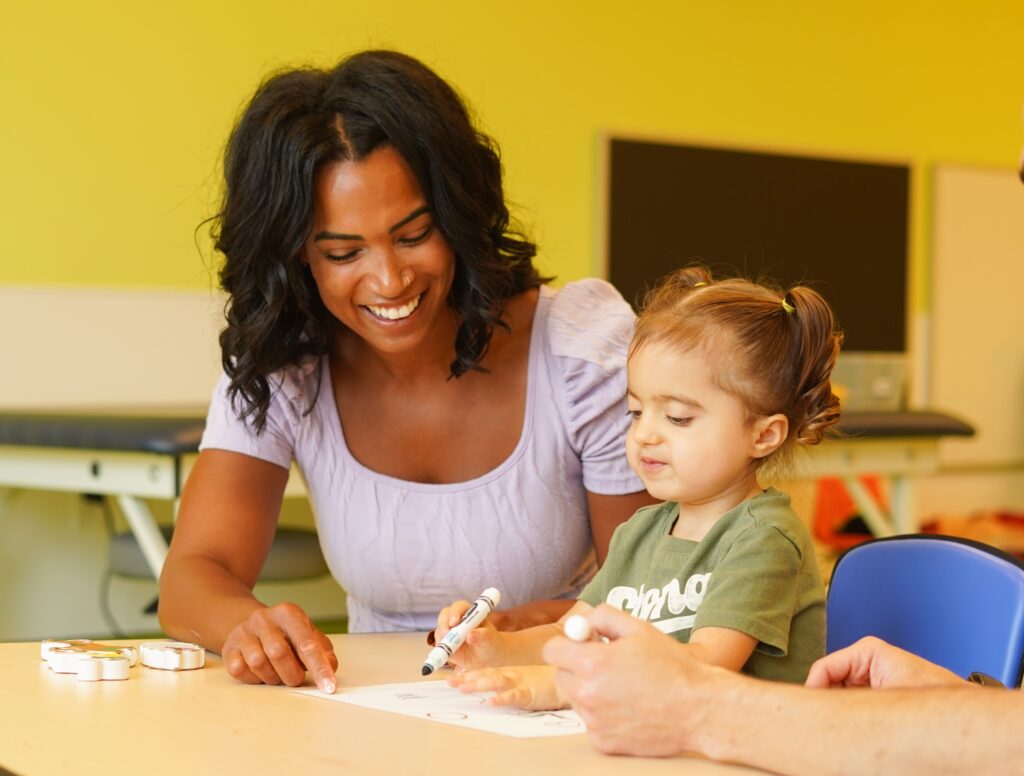
International Augmentative Alternative Communication (AAC) Awareness Month
October is International Augmentative and Alternative Communication (AAC) Awareness Month, a time to recognize the vital role AAC plays in helping people express themselves and connect with others. AAC can include using pictures, a tech device, sign language, writing things down, body language or any other way of communicating that isn’t speaking. For some, AAC is their primary means of communication. For others, it provides essential support when speech is limited. AAC Awareness Month is an opportunity to learn more about the many ways people communicate and connect.
Article 12 of the United Nations Convention on the Rights of the Child says, “Children have the right to say what they think should happen and have their opinions taken into account.” Having different ways to communicate is essential for children to express their needs and share their thoughts.
Books like Roz MacLean’s More than Words: So Many Ways to Say What We Mean explore communication options and devices that children might use.
Think about the different ways you communicate. Texting, emojis and memes are all ways to get a message across without speaking. Our words are powerful and important, no matter how we choose to express them.
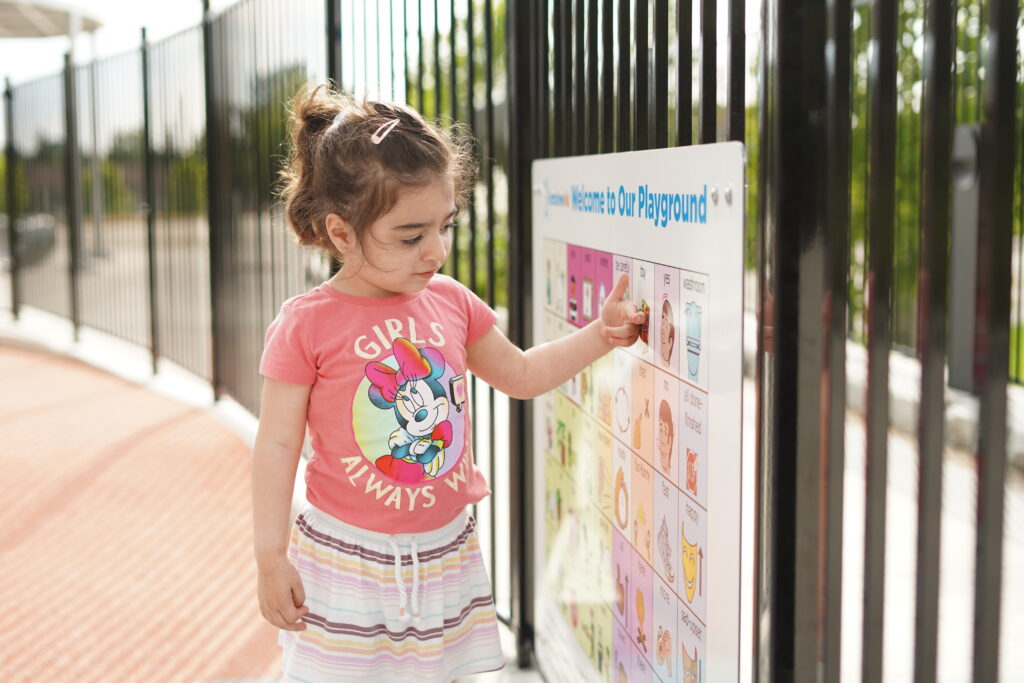
National Disability Employment Awareness Month
October is National Disability Employment Awareness Month, a time to promote inclusion and fair employment practices for people with disabilities. The month raises awareness that individuals with disabilities have the right to equal opportunities to work and contribute their skills. It also encourages employers and communities to remove barriers, provide support and create environments where everyone can work and feel valued.
At Grandview Kids, employees and summer students with disabilities help shape our workplace, programs and events. Through their lived experiences, they offer valuable insights into both challenges and solutions, helping us make our spaces more inclusive and accessible.
Guided by the Accessibility for Ontarians with Disabilities Act (AODA), we are committed to identifying and removing barriers to ensure fair opportunities for all.
Not hiring someone because of a disability is not only illegal under Canadian human rights and accessibility laws, it also means missing out on diverse perspectives and valuable skills. Discrimination can lead to legal complaints, fines and reputational harm. Inclusive workplaces thrive by becoming stronger and more innovative.
This month is a reminder to value every perspective, regardless of physical or intellectual barriers, and to create workplaces where everyone feels welcome.
Rett Syndrome Awareness Month
October is recognized as Rett Syndrome Awareness Month, a time dedicated to raising awareness and understanding of this rare and complex neurological disorder.
Rett syndrome is a genetic condition that primarily affects girls and leads to severe impairments in speech, motor skills and cognitive development after an initial period of typical growth. It is most often caused by mutations in the MECP2gene and usually becomes apparent between six and 18 months of age.
Common symptoms include loss of purposeful hand use, difficulties with walking, irregular breathing and seizures.
Organizations such as the International Rett Syndrome Foundation lead efforts throughout the month to educate the public, support families and fund vital research. Through community events, personal stories and educational outreach, Rett Syndrome Awareness Month helps drive progress toward better treatments and, ultimately, a cure. It also fosters a supportive community for those affected by the disorder.
Learning Disabilities Awareness Month
October is Learning Disabilities Awareness Month. Learning disabilities are brain-based and have nothing to do with intelligence, capability, effort or character. One in every 10 Canadians has a learning disability (LD), and ADHD co-occurs with LDs 30 to 40 per cent of the time. Among Canadians with an LD, 96 per cent also have at least one other disability.
Sadly, 68 per cent of youth with learning disabilities experience mental health challenges. But we can change that. Together, we can ensure everyone has the opportunity to access their right to learn and the power to achieve.
This month is a time for inclusion, to learn the facts and to reflect on strengths, empowerment and the importance of removing the stigma around learning disabilities.
Grandview Kids mom and HR generalist Vera O. shares her family’s diagnosis and how she navigates her son Noah’s life with learning disabilities.
My son Noah has several identified learning disabilities, along with ADHD and a mild form of autism. He is also exceptionally brilliant, creative, capable, an entrepreneur and a humanitarian and philanthropist. I was cautioned to manage my expectations and accept that he would struggle and have limitations. I saw beyond that. I saw potential. I knew he could do or be anything.
I reached out to agencies, including Grandview Kids. I committed to learning how he learns — what works, what makes it more challenging, how he processes information. Sure enough, he can process like everyone else, sometimes more efficiently and better than average. With support, tools, strategies, practice, patience and encouragement, I have found that he can succeed. Does it matter how he gets from point A to point B? What matters is that he gets there.
I clearly recall when he was six, struggling to learn to read and recall information. There was a tiny voice expressing frustration, fear and shame. I told him, “I am here. You can and you will. I will be here. Together, we will.” I turned learning into a game, with short sessions, character voices and sounding out words. The key was consistency. We practised language use by making up stories about what we read.
I rewarded his progress with quality time doing things he enjoyed. I did the same with handwriting, providing the tools he needed. An occupational therapist from Grandview Kids worked with him at school and recommended special writing paper. I rewarded him for every legible page and recognised his success.
It was Noah who insisted in grade nine that he was capable and wanted to be in a fully mainstream high school like everyone else. With encouragement, study help and tutors at first, he began realising success. He put in extra effort and started getting A’s. One day he said, “Mom, I may have to work harder than everyone else, but I can do what everyone else can do.” I smiled and replied, “Yes, you can, you are, and I’ll bet you can do even more. Nothing is out of your reach.”
There are challenges — frustration, escalation, undeserved shame, embarrassment and even anger. It is amazing how those barriers to success can be removed with support, tools and encouragement. I believe it is about someone believing in you, showing they believe in you, and eventually you believing in yourself.
At age five, Noah raised $330 for Sick Kids Hospital. He didn’t want gifts. He wanted to help sick kids because it isn’t fair to them. At age 12, he started his own business, Water on Wheels, and made $220 on his first day. He is now in grade 12, has a part-time job, is achieving excellent grades, has nearly completed his volunteer hours and self-manages. He intends to pursue a skilled trade in carpentry or mechanics. We still celebrate his wins.
Having a learning disability does not need to be a barrier. It needs to be identified, supported and a new path to success established. Success is possible.
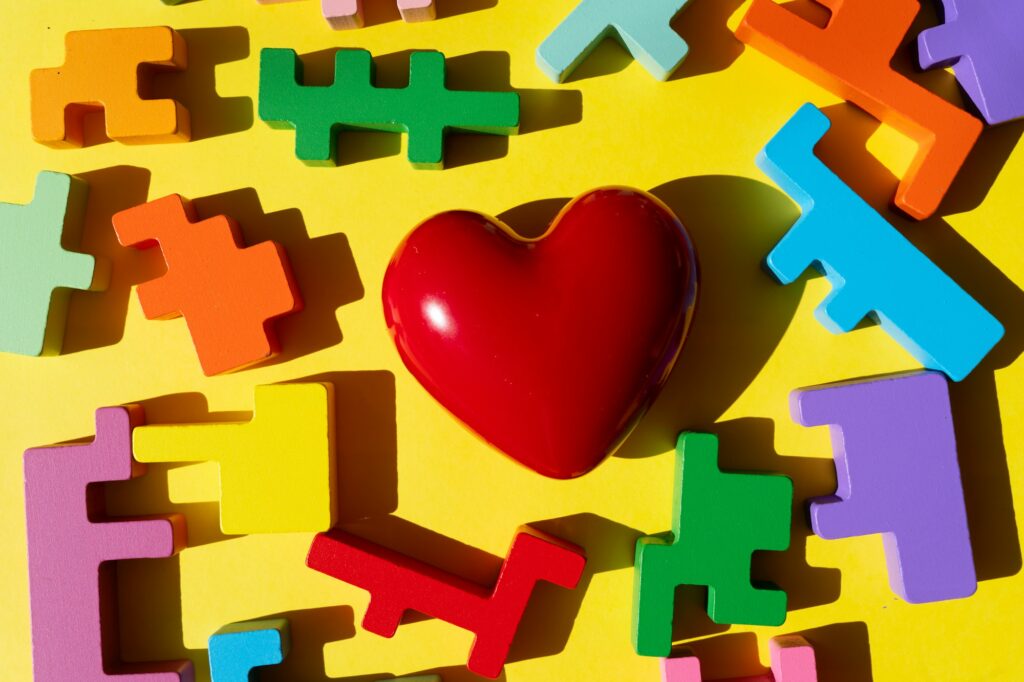
Global Diversity Awareness Month
Global Diversity Awareness Month is a time to recognize and celebrate the many cultures, backgrounds and perspectives that make our world and our organization unique.
Why is diversity important?
Diversity means having people from different races, cultures, religions, genders, ages and abilities. When we work with people who are different from us, we learn new ideas, see things from different perspectives and grow as individuals and as a team.
Diverse teams are stronger because they bring together many voices. This helps us solve problems more effectively, be more creative and make everyone feel included and respected.
How can we support diversity?
- Learn about other cultures
- Read a book , watch a documentary or attend a cultural event.
- Listen and ask questions. Be curious and respectful when learning about someone’s background or experiences.
- Speak up. If you see unfair treatment or exclusion, say something or support someone who does.
- Celebrate differences. Share your own story and encourage others to do the same. Every voice matters.
Global Diversity Awareness Month reminds us that our differences are our strengths. When we embrace diversity, we help build a better world. Let’s celebrate each other, learn from one another and continue growing together!
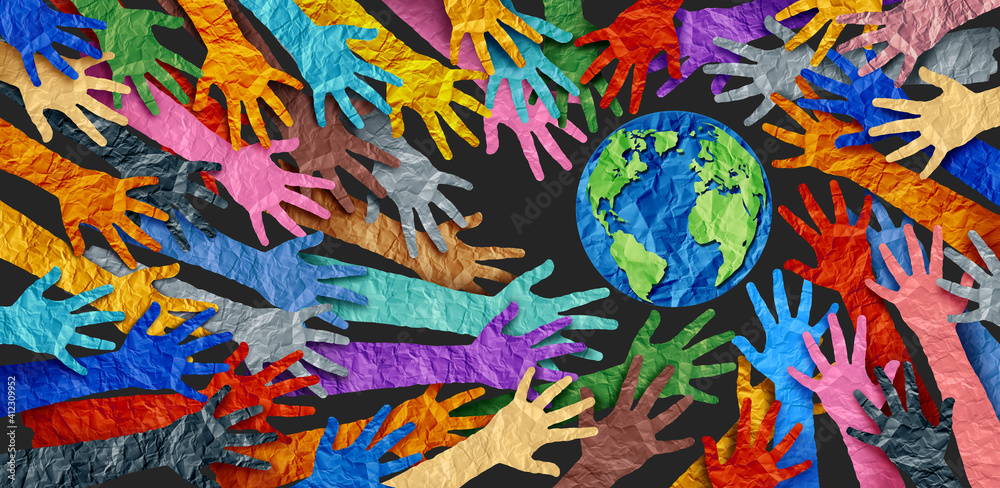
Canadian Islamic Heritage Month
Every October Canada celebrates Islamic Heritage Month honouring the rich history, culture and contributions of Muslim communities across the country and around the world. The first recorded presence of Muslims in Canada dates to the 1860s during the country’s early state formation. Today Islam is the second most widely declared religion in Canada after Christianity with diverse and thriving communities from South Asia, the Middle East, Eastern Europe, sub-Saharan Africa and beyond. Together these communities bring a wealth of traditions, languages and experiences that continue to shape and enrich Canadian society.
Islamic Heritage Month is not only about celebrating identity and culture it is also an opportunity to reflect on the profound impact Muslim scholars, scientists and innovators have had on shaping the modern world. Between the eighth and 14th centuries during what is known as the Islamic Golden Age Muslim thinkers made groundbreaking advances in medicine, astronomy, mathematics, engineering and the sciences centuries before similar developments in Europe.
Their work laid the foundation for modern technology and scientific thought. However, these contributions have often been overlooked or undervalued in Western narratives, which have tended to disregard the achievements of Muslim scholars. Islamic Heritage Month challenges these omissions by highlighting a legacy of knowledge, innovation and progress that continues to shape our world today.
Notable figures like Al-Khwarizmi, known as the father of algebra, whose work introduced the term and laid the groundwork for algorithms that power modern computing, made lasting contributions to mathematics. In the field of engineering, Al-Jazari designed intricate automated machines, including water clocks and mechanical devices described in his landmark 13th-century manuscript The Book of Knowledge of Ingenious Mechanical Devices. These scholars exemplify the profound impact of Muslim heritage on science and innovation, reminding us of the enduring value of curiosity, knowledge and creativity in shaping the modern world.
As we observe Canadian Islamic Heritage Month, let us take this opportunity to learn, and appreciate the rich legacy of Muslim communities, past and present, and their ongoing contributions to a stronger, more inclusive Canada.
Women’s History Month
Women have shaped Canadian history through their contributions in the military, law, social movements, human rights advocacy, education, medicine, athletics, political leadership and science.
To recognize these achievements, October is marked as Women’s History Month in Canada. The federal government officially designated the month in 1992 to celebrate the vital role women and girls have played in building a stronger, safer and more inclusive country. From courage and tenacity to brilliance and leadership, their efforts have helped Canada move closer to becoming a culturally rich, fair and just society.
This October, honour our heritage by learning more about the trailblazing women who have helped shape our nation’s history.
- Viola Desmond, Canadian antiracism activist
- Jeanne Mance, the founder of Canada’s first hospital
- Emily Stowe, the first Canadian woman physician
- Elsie Knott, the first Canadian woman First Nation Leader
- Dr. Roberta Bondar, the first Canadian woman astronaut in space
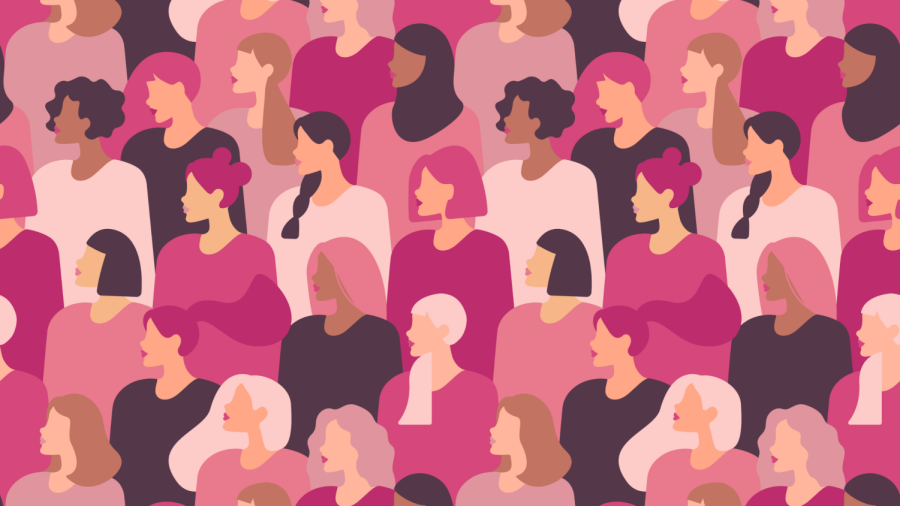
National 2SLGBTQIA+ History Month
October is National 2SLGBTQIA+ History Month, a time to honour the histories, contributions and resilience of 2SLGBTQIA+ community. Throughout this month we reflect on the struggles for equity and human rights, and celebrate the individuals and movements that have helped shape a more inclusive Canada. From advocacy for legal protections to groundbreaking cultural and political leadership, 2SLGBTQIA+ people have played a vital role in building a more just and compassionate society.
By learning about 2SLGBTQIA+ history, Canadians can better understand the importance of inclusion, representation and solidarity. Recognizing the achievements and lived experiences of 2SLGBTQIA+ individuals helps foster a society where everyone is valued, respected and free to live authentically.
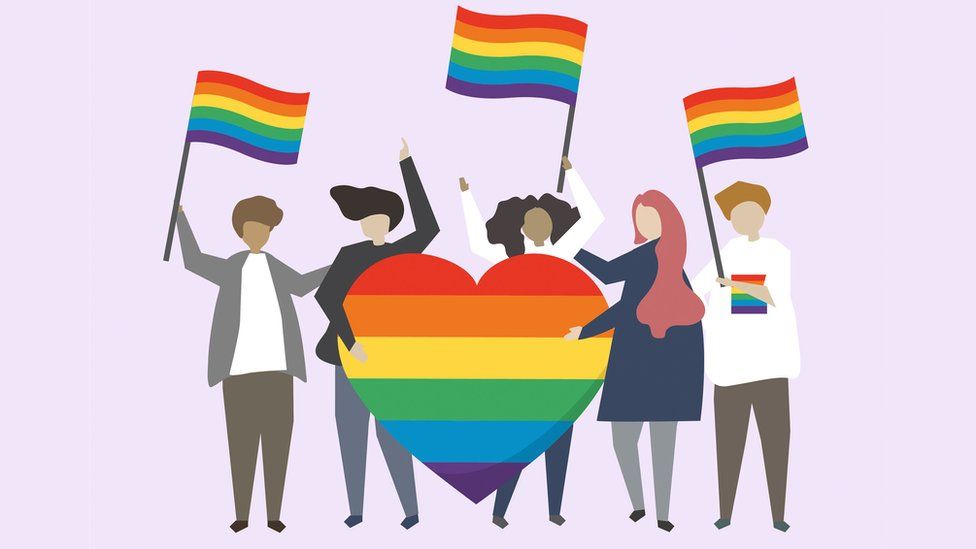
World Cerebral Palsy Day: October 6
World Cerebral Palsy Day is marked each year on October 6 to celebrate the lives and achievements of people with cerebral palsy and to raise awareness about the challenges they face. The day brings together individuals, families, organizations and communities around the world to advocate for inclusion, accessibility and equal opportunities.It is a reminder of the need to break down barriers, support innovation and promote understanding so that people with cerebral palsy can live independently and with dignity.
World Mental Health Day: October 10
October 10 is World Mental Health Day, a time to recognize that mental health is a vital part of overall well-being. Yet it remains widely misunderstood, often overlooked and still stigmatized. Around the world, millions of people face mental health challenges every day, challenges that affect relationships, work and quality of life. From anxiety and depression to more complex conditions, mental health concerns exist in every culture, age group and community.
Raising awareness is only the first step. Supporting mental wellness means creating environments that value empathy, education and access to care. It begins with listening without judgment, speaking openly about mental health and ensuring no one feels alone in their struggles.
This World Mental Health Day, let’s recommit to building a society where mental health is treated with the same importance as physical health, a place where seeking help is viewed as a strength. Through understanding and connection, we can promote mental wellness and ensure support is always within reach.
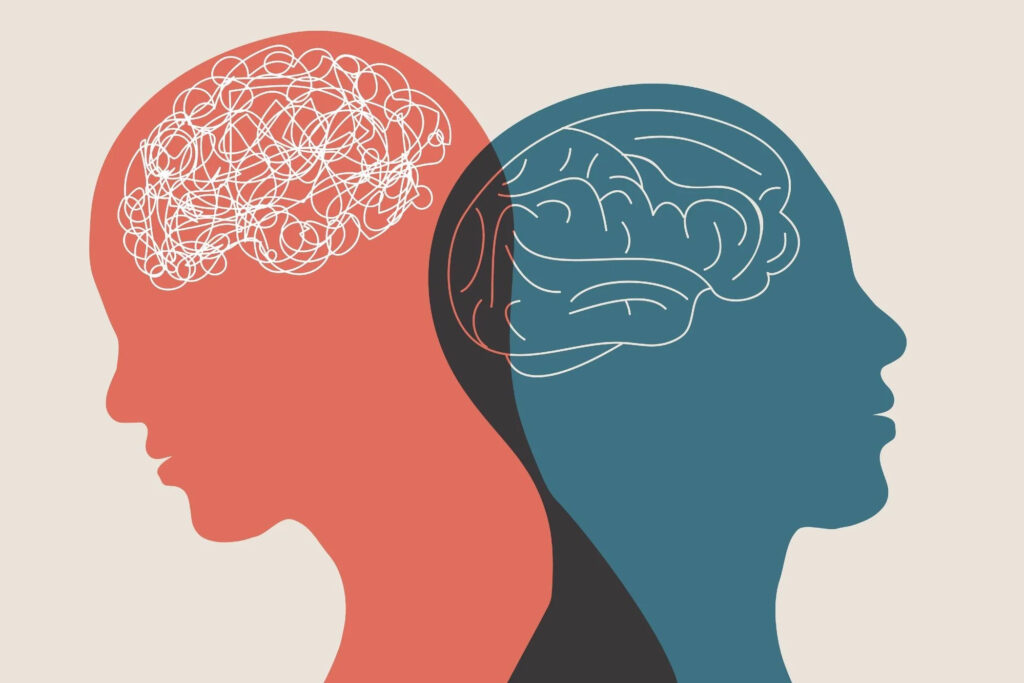
International Day of the Girl Child: October 11
The International Day of the Girl Child, observed annually on October 11, highlights the rights, challenges and potential of girls around the world. Established by the United Nations in 2011, the day draws attention to issues such as gender-based violence, access to education, child marriage and inequality in health care and leadership opportunities. In Canada, organizations and communities mark the occasion with events, campaigns and advocacy efforts aimed at empowering girls and promoting gender equity. The day serves as a reminder of the importance of investing in girls’ futures and amplifying their voices in shaping a more inclusive society.
Person’s Day: October 18
October 18 marks Person’s Day, a time to honour the 1929 legal victory that recognized women as persons under Canadian law. The decision by the Judicial Committee of the Privy Council allowed women to be appointed to the Senate and affirmed their right to fully participate in public life. The case was brought forward by five Alberta women, Emily Murphy, Nellie McClung, Irene Parlby, Louise McKinney and Henrietta Muir Edwards, who became known as the Famous Five.
The day serves as a reminder of the ongoing pursuit of gender equality in Canada. Events and discussions are held across the country to reflect on the progress made and the challenges that remain. Person’s Day highlights the importance of civic engagement and the continued efforts to ensure equal representation in all areas of society.
Invisible Disabilities Week: October 19 to 25
October 19 to 25 marks Invisible Disabilities Week, a time to raise awareness about the challenges faced by people living with disabilities that are not immediately visible. The week encourages greater understanding and empathy from able-bodied individuals and highlights the need to remove barriers that impact daily life for many.
While some disabilities are more apparent, many are not. It is estimated that one in seven people globally has a disability and that 90 per cent of those are invisible. These can be neurological, mental or physical conditions that may not be obvious but still affect a person’s ability to navigate the world.
Examples of invisible disabilities include:
- Epilepsy
- Diabetes
- Autism
- Ulcerative colitis
- Fibromyalgia
- Long COVID
- Learning difficulties such as dyslexia
- Chronic conditions
Invisible Disabilities Week is a reminder that not all disabilities are seen, but all deserve recognition, accommodation and respect.
International Stuttering Awareness Day: October 22
Stuttering is an interruption in fluency when speaking. It can lead to frustration and, in some cases, cause people to avoid speaking altogether.
On October 22, we raise awareness about stuttering and work to debunk the myths that can cause harm to those who experience it. Stuttering can have various causes, including genetic and neurophysiological factors. Some environmental factors, such as stress, negative reactions from others and pressure to stop stuttering, can make it worse.
By creating patient and supportive spaces for people who stutter, we give them the opportunity to speak and be heard. Everyone’s voice matters.
International Dwarfism Awareness Day: October 25
When most people hear the word “dwarfism”, they think only of height. But International Dwarfism Awareness Day is about more than size, it’s about perspective, inclusion and human dignity.
Imagine a world where every counter is too high, where reaching an ATM means asking for help, where clothing rarely fits and where strangers often see your difference before they see you. Too often, people with dwarfism are reduced to stereotypes or comic relief. But real life tells a different story. People with dwarfism are athletes, scientists, teachers, entrepreneurs, parents and advocates. They are shaping communities, leading change and living full, active lives.
Language matters, and respect starts with the words we choose. Preferred terms include “Little Person,” “person with dwarfism” or simply a person’s name. Being aware means using inclusive language that honours dignity and fosters understanding.
Step-stools, adjustable desks, lower light switches and universal design are not extras, they are smart, inclusive ways to build spaces that work for all. What benefits one community often supports many others, including children, seniors, people with disabilities and those recovering from injury or illness.
Dwarfism affects about one in every 25,000 births. There are more than 400 medical conditions that can cause short stature. Dwarfism is not an illness to be “fixed”, while some individuals may require medical care, the most significant barriers are often social, not physical.October 25 is not about sympathy. It is about moving past assumptions, listening to lived experiences and rethinking how we design, include and respect. Dwarfism is not just about height, it is about reminding us that true equity is not measured in inches, but in opportunities.
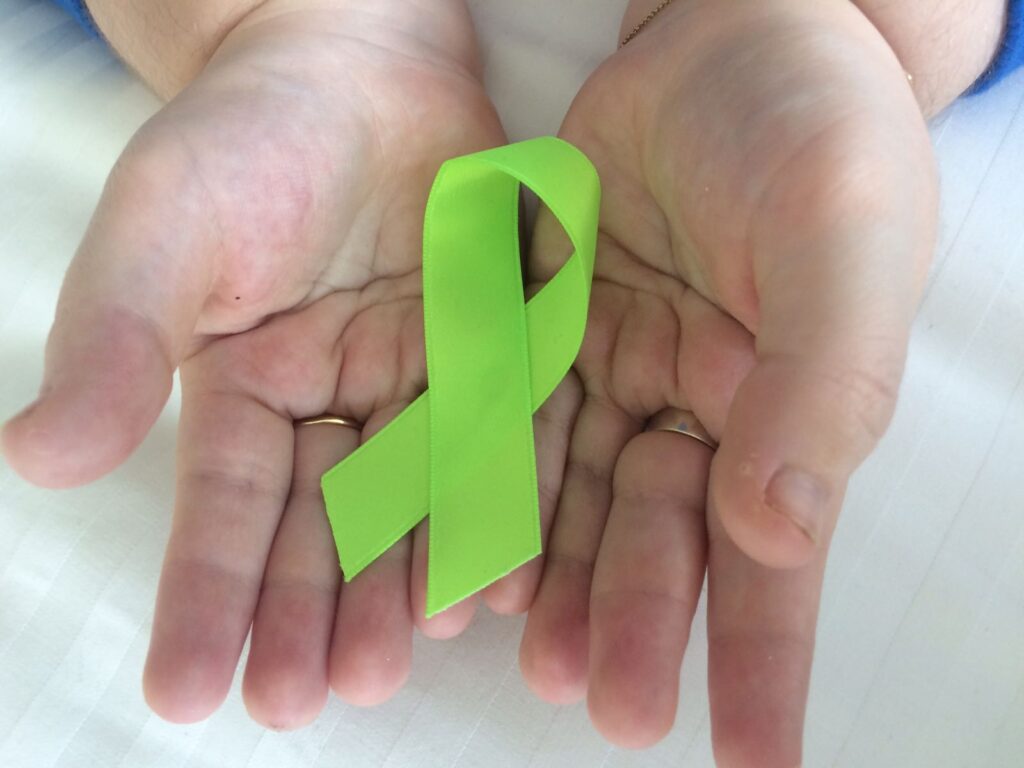
World Spina Bifida and Hydrocephalus Day: October 25
On October 25, the global community marks World Spina Bifida and Hydrocephalus Day to recognize the rights, remove barriers and celebrate the strengths of people born with spina bifida and those living with hydrocephalus. Spina bifida is a neural tube difference present at birth. With appropriate medical care, equipment and accommodations at school and work, children and adults can fully participate in learning, play and employment.
We encourage community partners to make inclusion concrete through step-free access, accessible washrooms and changing spaces, quiet areas for headaches or sensory breaks, and respectful privacy for catheterization and other routines. We also highlight the importance of “latex-safe” environments. People with spina bifida are at higher risk of latex allergies, and everyday items like gloves and balloons can cause serious reactions. Simple changes, such as using nitrile or vinyl gloves and foil or Mylar balloons, make a big difference. When we design with everyone in mind, we create communities where people can focus on living, not navigating obstacles.
World Occupational Therapy Day: October 27
Occupational therapists play a vital role in improving the health and well-being of individuals by helping people of all ages participate more fully in the activities that matter most to them. Working in partnership with individuals, families and communities, OTs support meaningful engagement in daily life.
From paediatrics to geriatrics, orthopedic rehabilitation to mental health, and community safety to correctional settings, occupational therapists are found across every area of care. Their work focuses on understanding what is important to each person and helping them achieve their goals, whether in work, school, play, self-care or other aspects of daily living.
At Grandview, 47 front-line occupational therapists work across all programs and sites, with several others serving in leadership roles, including the CEO. On World Occupational Therapy Day, we recognize their invaluable contributions to building healthier, more inclusive communities.
World Stroke Day: October 29
World Stroke Day, observed annually on October 29, raises awareness about stroke prevention, treatment and recovery. Stroke remains a leading cause of death and disability worldwide, but many strokes can be prevented through lifestyle changes and timely medical care. The day encourages individuals to recognize warning signs, seek immediate help and support survivors on their journey to recovery. By promoting education and advocacy, World Stroke Day aims to reduce the impact of stroke and improve outcomes for people and families affected by this life-altering condition.

